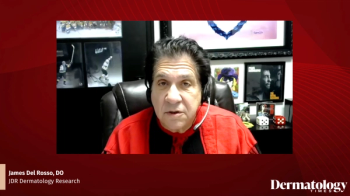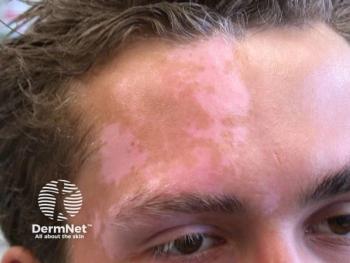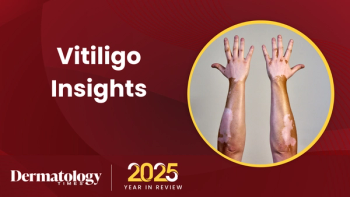
FDA Approves Ruxolitinib Cream 1.5% to Treat Nonsegmental Vitiligo
Ruxolitinib (Opzelura) cream is the first and only FDA-approved treatment for patients with vitiligo.
Incyte announced the FDA has approved ruxolitinib (Opzelura; Incyte) cream 1.5% as a topical treatment of nonsegmental vitiligo in adult and pediatric patients 12 years of age or older.1 The groundbreaking approval is the only FDA-approved treatment for repigmentation and the only topical formulation of a JAK inhibitor approved in the US. Vitiligo is an autoimmune disease that causes sections of the skin to lose their pigment (color), causing white patches of skin to appear. Melanocytes are attacked and destroyed by the body’s immune system and can occur anywhere in the body.2
Ruxolitinib provides relief to patients with nonsegmental vitiligo that had high unmet medical needs and no previously approved therapy options. For the best results, patients should apply ruxolitinib cream twice daily to the affected areas of skin, up to 10% of body surface area. It may take more than 24 weeks for patients using ruxolitinib cream to see satisfactory results.
"Adolescents who have vitiligo are some of the worst hit because they have a disorder that can really affect their self-image and development of self-esteem. It’s such a critical time," said Amy Paller, MD, and chair of dermatology at the Northwestern University Feinberg School of Medicine in Chicago, Illinois. "Having more in our armamentarium to try to return the pigmentation of vitiligo is incredibly important at this age.”
The approval was based on data from the
Common adverse effects of ruxolitinib in people treated for nonsegmental vitiligo include acne at the application site, itching, common cold, headache, urinary tract infection, redness, and fever.
"I’m just hopeful that we’ll be able to access this medication for the wide range of patients with various forms of insurance who need the medication. I’m so excited about another product, and one that’s specifically been tested and is on-label for vitiligo," said Paller. "I think that’s going to make it easier for us to get ruxolitinib for our patients who really need it. This is a disorder that can be absolutely devasting. I’ve treated teens who refuse to go to school, even with more subtle vitiligo, because they think it’s so apparent."
In a recent
References:
- Incyte announces US FDA approval of opzelura (ruxolitinib) cream for the treatment of vitiligo. Published July 19, 2022. Accessed July 19, 2022.
https://www.businesswire.com/news/home/20220718005819/en/Incyte-Announces-U.S.-FDA-Approval-of-Opzelura%E2%84%A2-ruxolitinib-Cream-for-the-Treatment-of-Vitiligo - Vitiligo. Yale Medicine. Accessed July 19, 2022.
https://www.yalemedicine.org/conditions/vitiligo
Newsletter
Like what you’re reading? Subscribe to Dermatology Times for weekly updates on therapies, innovations, and real-world practice tips.











